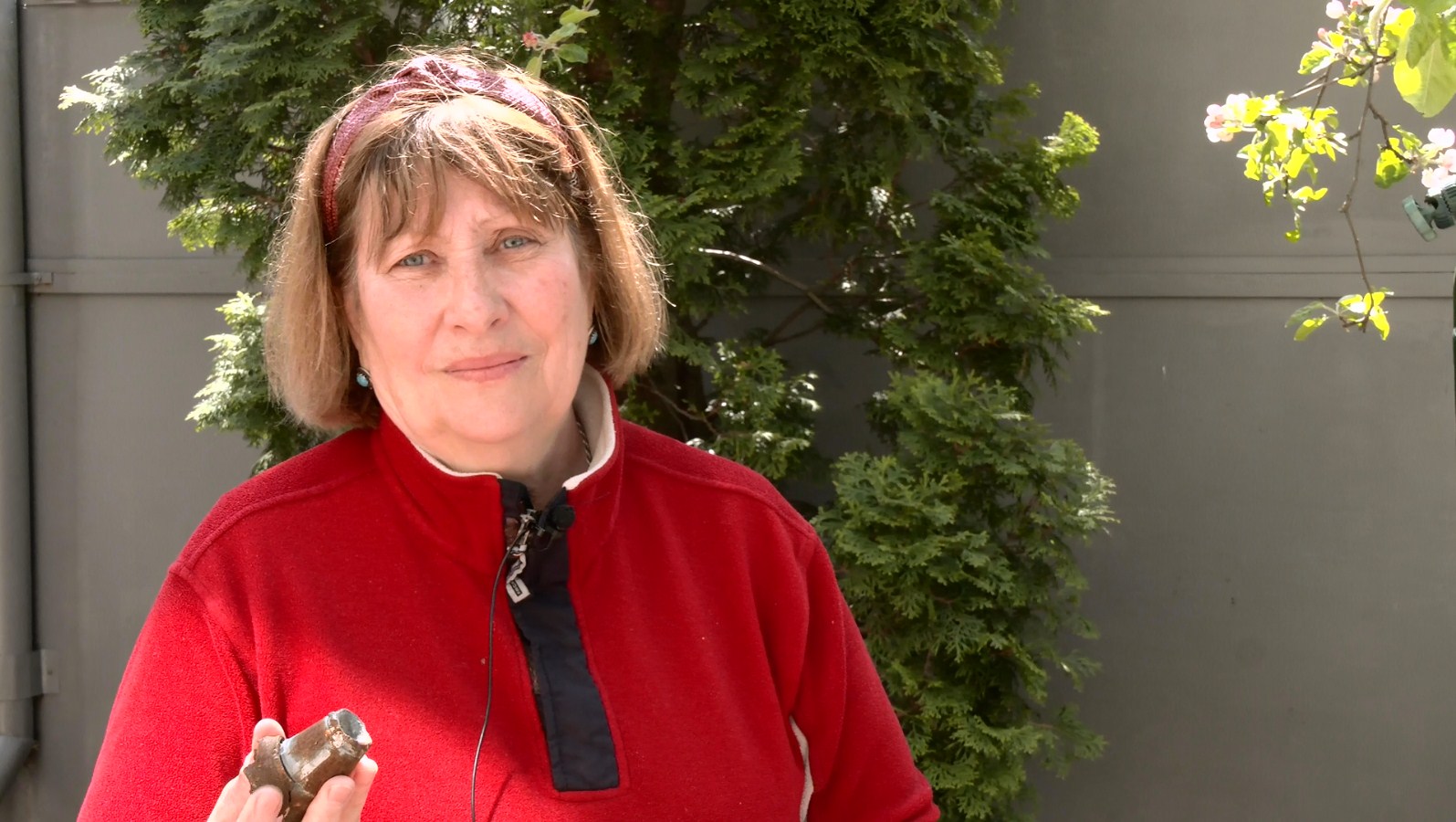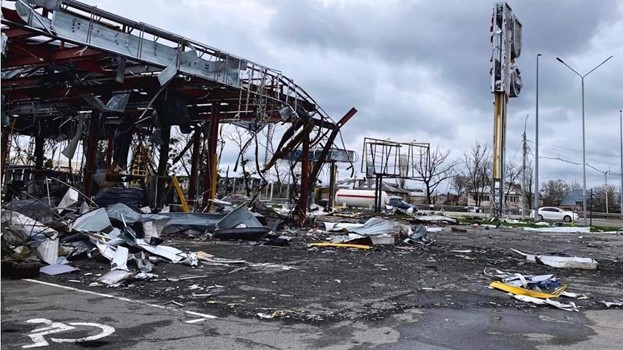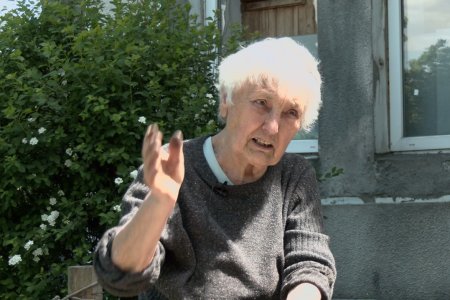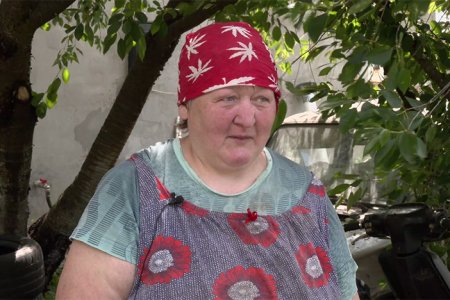I am Olena Ivanivna Skordziievska. All my life, I have lived in Stoianka. I was born here, in my parents’ house. I am retired, but I worked in the Ekol warehouse complex in Stoianka before the war.
How was the first day of the war on 24 February 2022 for you?
I was going to work, but my grandchildren called and said they [Russians] were already shooting in Kyiv. They said on the radio that the war had begun. Of course, no one went to work, and we stayed home. We called our relatives in Kyiv to come to us to hide from the shelling. But, in the end, it so happened that it was safer in Kyiv than in Stoianka.

What happened in the following days?
In the following days, we sat in the cellar. Airplanes flew and ruined the bridge. It was almost impossible to get out of the cellar because of the constant shooting. So we sat in the cellar until 7 March. It was cold, and we slept in clothes.
We were in the line of fire — constant skirmishes between ours and the Russians. We lay dressed, and when we heard rumbles, we rushed forward to the cellar.
Then they bombed the KLO gas station, the ATB store, and all the Ekol warehouse complex premises caught fire. Then all the people began to leave, but Russian snipers were not far away, so five people died from the snipers’ shooting. For example, one person went to our military and brought them some clothes because it was cold. Russian snipers killed him, and only two months later, his mother managed to come here and bury her son. Before, it was impossible to do this. For two months, it was impossible to bury a person properly. A rocket hit our house. Good thing we didn’t see it. We evacuated on 7 March and went to Zhmerynka, when a corridor was given.

Were there any problems with evacuation?
Well, every man was for himself. Everyone went as best they could. We had nothing because the shops did not work, so we ate what we had. And then there was no gas, water, or light, and we were forced to leave. They came for us, took us away, and we were in Zhmerynka for a month. Then we returned and saw a picture: a hole in the house, no fences, and the same at neighbors, no windows, nothing ... My sister and I arrived and started bringing things and ordering to repair everything as soon as possible.
Does the state help you?
We do everything at our own expense. And the state — I do not know. It will be as it will be. It’s best to rely on yourself.
What precisely of your property was damaged?
There were no windows, storm drains, or fences. Debris flew into the house. But the main thing is that the house was not as severely damaged as some. Some people became homeless. We are, as they say, lucky. It was terrifying when the planes flew, and fragments fell on the roof. Our neighbors — son and mother were killed by shrapnel. Another woman received a shrapnel wound. At first, she seemed to have recovered, but unfortunately, she died. The shelling was so terrible that the trees were mowed down. Awful, of course. Please, God, let this all end.

What other Russian war crimes in Stoianka do you know about?
We have summer cottages a little further away, where the men hid (they worked here, in “Silpo”) and were tortured terribly — their limbs were cut off. They hid in the basement, but they were found and tortured.
Why didn’t you evacuate immediately, and was there such a possibility?
There was an opportunity. But we did not think the Russians would come here; we thought it would blow over. Also, it was a pity to leave the dog, the cat ... As a result, we stayed until 7 March, when there was no water or gas. Then we were all taken away with cats and dogs — all were evacuated.
Has your attitude towards Russians changed?
It has changed, of course. What wrong have we done to them? These are fiends. I called my brother in Moscow, and he asked me: “Olena, what have you done?”
I don’t talk to him anymore. These monsters do not live and do not let others live.
What are you planning to do next?
We are planning to move on! Stoianka is my native village. We will work to restore it. We must dream. Everything will be fine with Ukraine!



